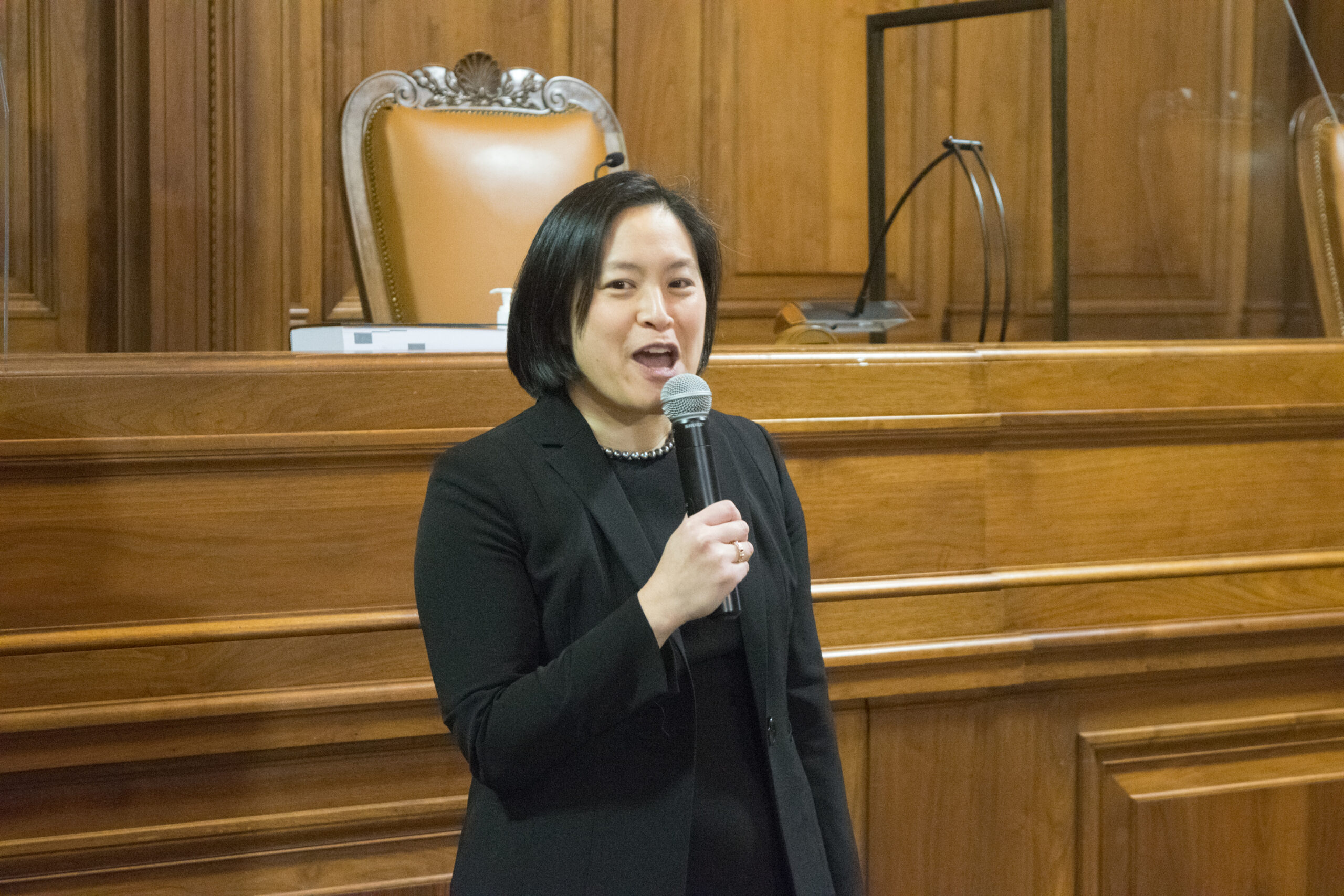Hon. Lillian Wan discusses her transition from trial to appellate judge

Photo: Robert Abruzzese/Brooklyn Eagle
In a recent episode of the Diversity Dialogues podcast, hosted by the New York State Unified Court System, the Hon. Lillian Wan, the first and only Asian American woman to serve on any of New York’s Appellate Division courts, discussed her life experiences, biases she faced, and how these shaped her career.
Justice Wan is a barrier-breaking legal figure with a rich career spanning family law to appellate adjudication. A Brooklyn Supreme Court alumnus, she was initially appointed to Family Court by Mayor Michael Bloomberg in 2012 before her appointment to the Court of Claims in 2018 by Gov. Andrew Cuomo. Elevated to the Appellate Division in 2022 by Gov. Kathy Hochul, Justice Wan has navigated her way through the legal landscape while confronting the challenges that came with being the daughter of Chinese immigrants.
She began her legal career as a litigator at the Family Court Legal Services Division, dealing with abuse and neglect cases. Later, she served as a court attorney/referee in Kings County Surrogate’s Court, handling diverse matters from trusts to adoptions.